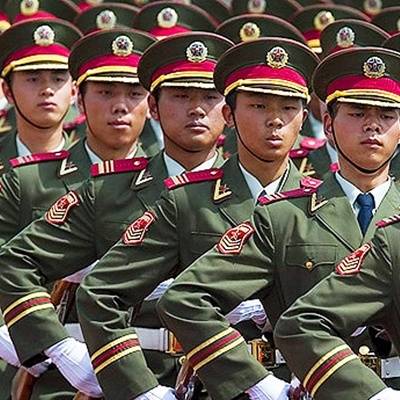
Xi Jinping — the man most likely to become China’s new president — appears to be a man very comfortable with the mantle of leadership.
Report by Kevin Rudd
He will take the helm at a time when China is emerging as the world’s largest economy. This will be the first time since George III that a non-English speaking, non-Western, non-democratic state will dominate the global economic order.
Xi can have confidence in his family background, given the contribution of his father Xi Zhongxun to the Chinese revolution and to subsequent economic development.
He has served in the Chinese military. He is confident of his economic credentials — holding senior positions in provincial administrations has given him the experience to manage the demands of economic development.
And over the last five years, Xi has spent a lot of time deepening his understanding of international matters, most particularly China’s relationship with the United States.
He is the sort of leader the US leadership can do business with as he seeks to continue China’s modernisation while maintaining strategic stability in East Asia.
What we know from economic history is that political power invariably flows from economic power and, over time, foreign and security policy power follow suit.
- Chamisa under fire over US$120K donation
- Mavhunga puts DeMbare into Chibuku quarterfinals
- Pension funds bet on Cabora Bassa oilfields
- Councils defy govt fire tender directive
Keep Reading
But the core challenge for China and the rest of the world will be managing the rise of China while maintaining and strengthening the current international rules-based order that has underpinned global strategic stability and economic growth since World War II.
The current order has served China well over the last 30 years during its reform and modernisation period.
It is in China’s interests that this order continues into the future notwithstanding the fact that it was not an order constructed with Chinese participation, but rather by victorious Western powers after the fall of Berlin.
While China’s economic power has grown rapidly, its military capabilities are significantly less than those of the US. Militarily, the US will remain the world’s only superpower until the middle of the century — that is, a power with truly global strategic reach.
China identifies Africa as an alternative source of energy and raw materials that are essential to the continuation of China’s economic modernisation process. But within the East Asian theatre or within the wider Indo-Pacific region, China’s capacity is becoming greater.
Chinese strategic capabilities, the force structure of its military together with its emerging military doctrine is aimed at supporting China’s “core interests” — in which the Chinese include long-term political unity with Taiwan, and the protection of China’s territorial and maritime claims in both the East China Sea and the South China Sea.
These claims are hotly contested by a large number of other regional states. Whereas the United States remains neutral on the merits of each of these claims and counter-claims, the South China Sea, as well as the Diaoyu/Senkaku islands, represent significant flashpoints for the future.
Political nationalism is alive and well across East Asia. Despite the fact that the economies of the region are increasingly integrated, the fires of political nationalism can easily be stoked.
These in turn become increasingly difficult to manage for the governments of the region — be they democratically elected or otherwise.
The key challenge for the region therefore is to build regional security including confidence and security-building measures between the militaries. This is emerging as a crucial task for the East Asia Summit — the pan-regional institution with high-level political participation and an open political and security agenda.
Beyond the eastern hemisphere, there is an open question of how China will exercise its foreign policy influence across the world.
For the period ahead, it should always be remembered that China’s paramount national objective is to complete the economic modernisation task for its nation and for its people. The centrality of this task governs much of China’s foreign policy behaviour.
China wants global strategic stability to continue for the simple reason that conflict undermines prospects for economic growth.
China also wants to ensure continued access to global markets which have been so fundamental to the success of China’s economic development so far.
Over time, the Chinese leadership hope that domestic consumption will provide a much stronger driver of its own economic growth than international demand.
China has become concerned about the fragility of the global economy given its experiences with both the global financial crisis and the euro crisis.
Nonetheless, open trade and investment flows will remain important for China’s medium-term economic future.
China also has a deep national political interest in becoming a respected global power. This therefore also goes to the heart of China’s contributions to the stability of the global order.
China is, however, likely to become a more active participant in a full range of global institutions — social, economic, humanitarian and environmental.
China pivotal in un security council Its position as a permanent member of the UN Security Council is already of pivotal significance, the ongoing Syrian crisis where China has continued its support for Russia’s veto of substantive UNSC action on Syria highlights a continuing conflict within China’s foreign and security policy establishment.
The foreign policy establishment is highly sensitive to international reaction to China supporting or protecting authoritarian regimes, be they in Damascus, Tehran or Pyongyang; the security establishment is driven by one of the deep axioms of Chinese international policy from the inception of the People’s Republic, namely the principle of mutual non-interference.











